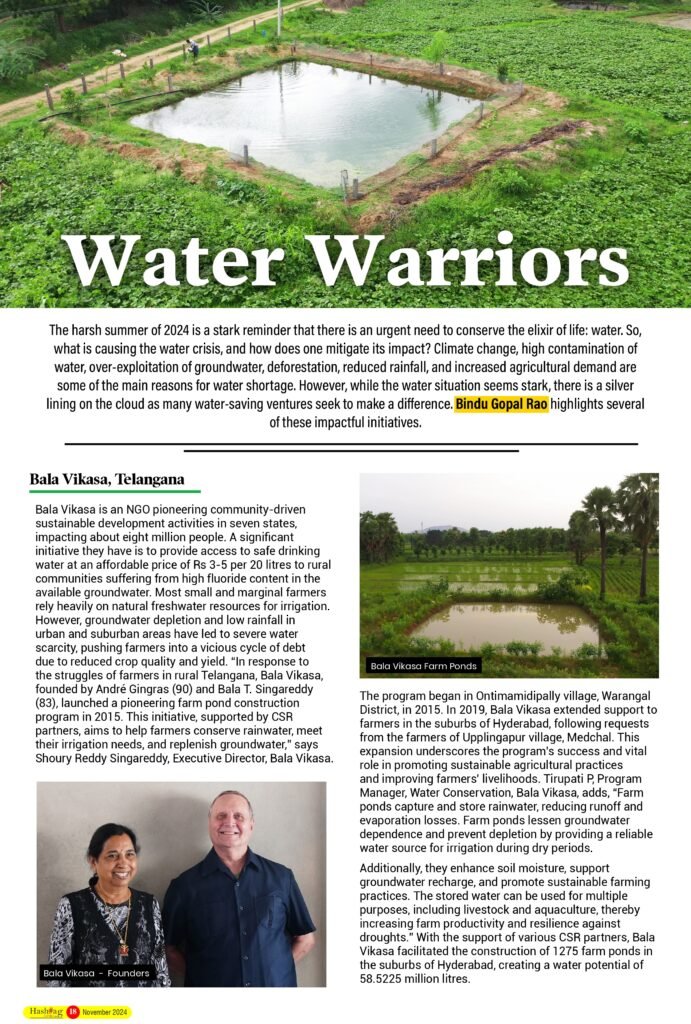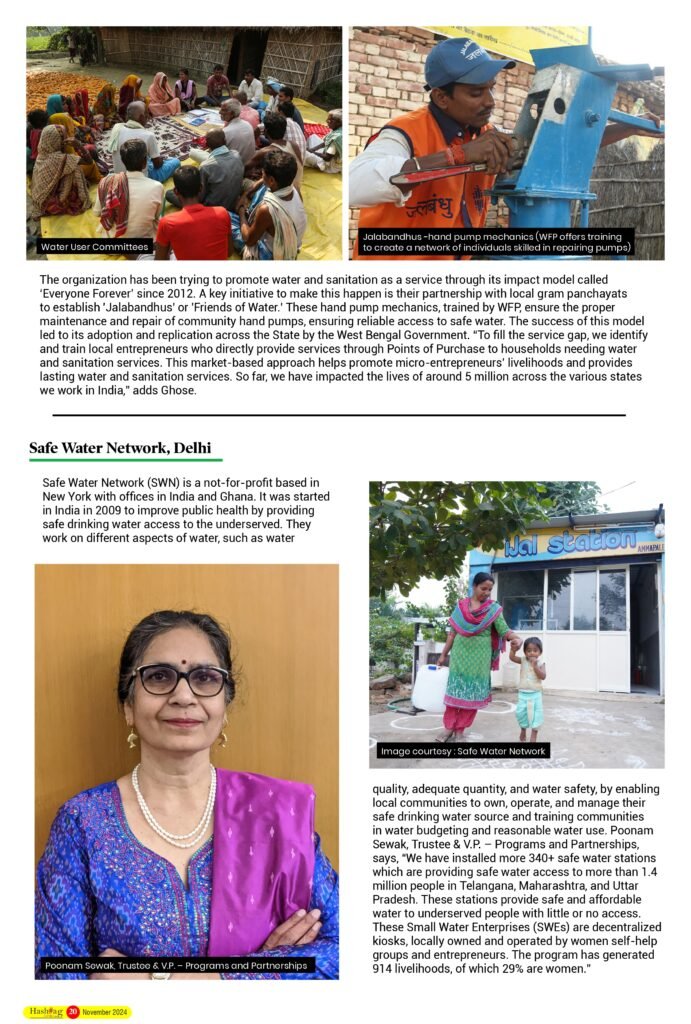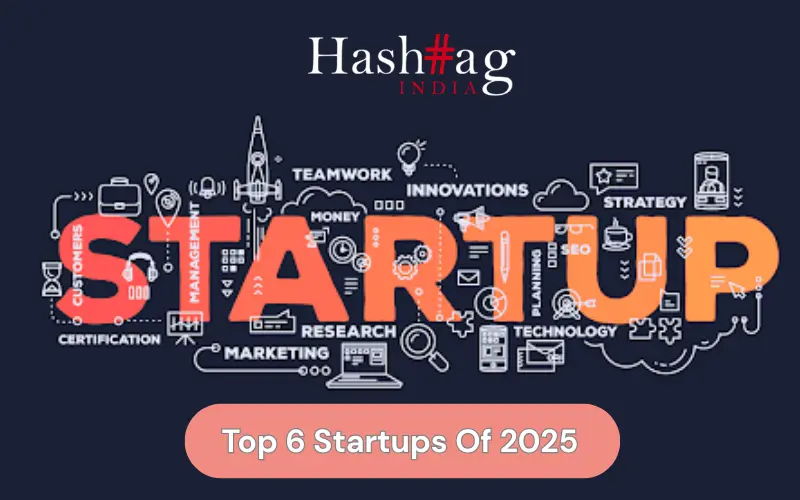The harsh summer of 2024 is a stark reminder that there is an urgent need to conserve the elixir of life: water. So, what is causing the water crisis, and how does one mitigate its impact? Climate change, high contamination of water, over-exploitation of groundwater, deforestation, reduced rainfall, and increased agricultural demand are some of the main reasons for water shortage. However, while the water situation seems stark, there is a silver lining on the cloud as many water-saving ventures seek to make a difference. Bindu Gopal Rao highlights several of these impactful initiatives.
Water Warriors
Bala Vikasa, Telangana
Bala Vikasa is an NGO pioneering community-driven sustainable development activities in seven states, impacting about eight million people. A significant initiative they have is to provide access to safe drinking water at an affordable price of Rs 3-5 per 20 litres to rural communities suffering from high fluoride content in the available groundwater. Most small and marginal farmers rely heavily on natural freshwater resources for irrigation. However, groundwater depletion and low rainfall in urban and suburban areas have led to severe water scarcity, pushing farmers into a vicious cycle of debt due to reduced crop quality and yield. “In response to the struggles of farmers in rural Telangana, Bala Vikasa, founded by André Gingras (90) and Bala T. Singareddy (83), launched a pioneering farm pond construction program in 2015. This initiative, supported by CSR partners, aims to help farmers conserve rainwater, meet their irrigation needs, and replenish groundwater,” says Shoury Reddy Singareddy, Executive Director, Bala Vikasa.

The program began in Ontimamidipally village, Warangal District, in 2015. In 2019, Bala Vikasa extended support to farmers in the suburbs of Hyderabad, following requests from the farmers of Upplingapur village, Medchal. This expansion underscores the program’s success and vital role in promoting sustainable agricultural practices and improving farmers’ livelihoods. Tirupati P, Program Manager, Water Conservation, Bala Vikasa, adds, “Farm ponds capture and store rainwater, reducing runoff and evaporation losses. Farm ponds lessen groundwater dependence and prevent depletion by providing a reliable water source for irrigation during dry periods.

Additionally, they enhance soil moisture, support groundwater recharge, and promote sustainable farming practices. The stored water can be used for multiple purposes, including livestock and aquaculture, thereby increasing farm productivity and resilience against droughts.” With the support of various CSR partners, Bala Vikasa facilitated the construction of 1275 farm ponds in the suburbs of Hyderabad, creating a water potential of 58.5225 million litres.
Volksara Techno Solution Pvt. Ltd., Mumbai
Nine years ago, when 23-year-old Saily Lad was walking around London with her father, a casual discussion about CCTV cameras installed at various locations came up. The conversation then pivoted to her research topic, ‘A project for smart cities in small countries.’ This ignited the idea of having a tech-led business in India, which is how Volksara came into existence in 2017. Volksara provides software solutions for monitoring and analysing a city’s water supply system.

They have worked with the Pimpri-Chinchwad Municipal Corporation (PCMC) to source 500 Megalitres per day (MLD) drinking water from the Pawana dam to Pune. Of this, 310 MLD sewerage is treated across 16 plants. “Our software helps PCMC bifurcate the treated sewerage data into fertilizer, slurry, and reusable water. Based on the data received, the treated sewerage is reused for gardening, dairy farming (including 10 MLD used by the military to maintain their dairy farm), and cleaning roads. PCMC re-uses approximately 90 MLD of treated sewerage instead of fresh water daily, conserving the valuable resource. In addition, 0.375 tons of MLD slurry are separated from the sewerage and dumped in the Moshi Kachara depot. Once the slurry gets dried, the same gets reused by farmers,” says Saily Prasad Lad, founder.
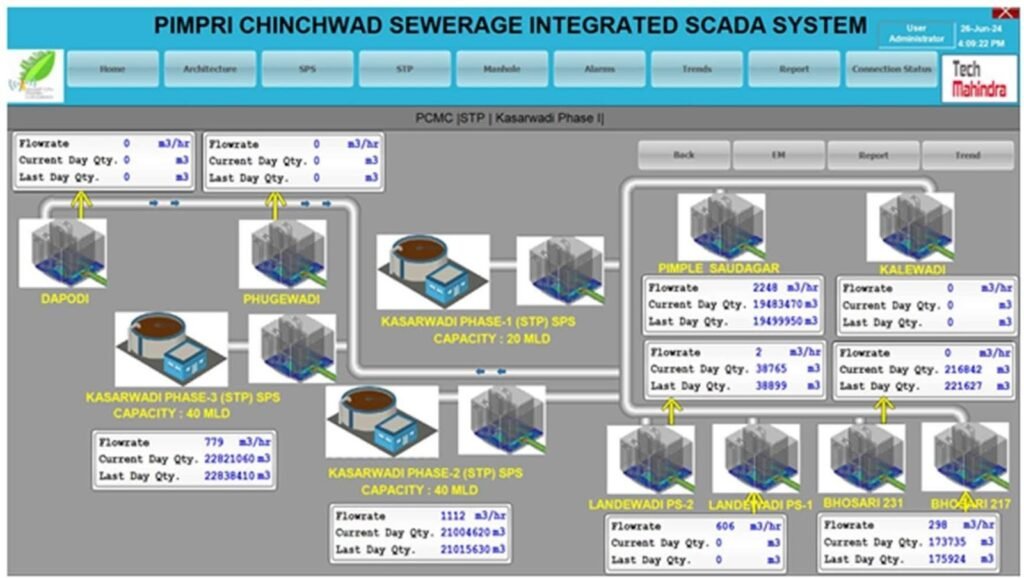
Water for People, West Bengal
Water For People (WFP) has been making significant strides globally for over 30 years, starting with the American Water Works Association in the USA, and their work in India has spanned an impactful 15 years. Dr. Arun Deb, the pioneer of WFP’s initiatives in India, played a crucial role in bringing their mission to life here. “We are dedicated to improving water and sanitation through various impactful initiatives. We have developed some solutions for critical issues like arsenic contamination and expanded our focus to integrated water and sanitation activities. The household piped water supply schemes we co-created with local communities provide access to drinking water, reducing wastage through efficient distribution systems,” says Bishwadeep Ghose, Country Head.
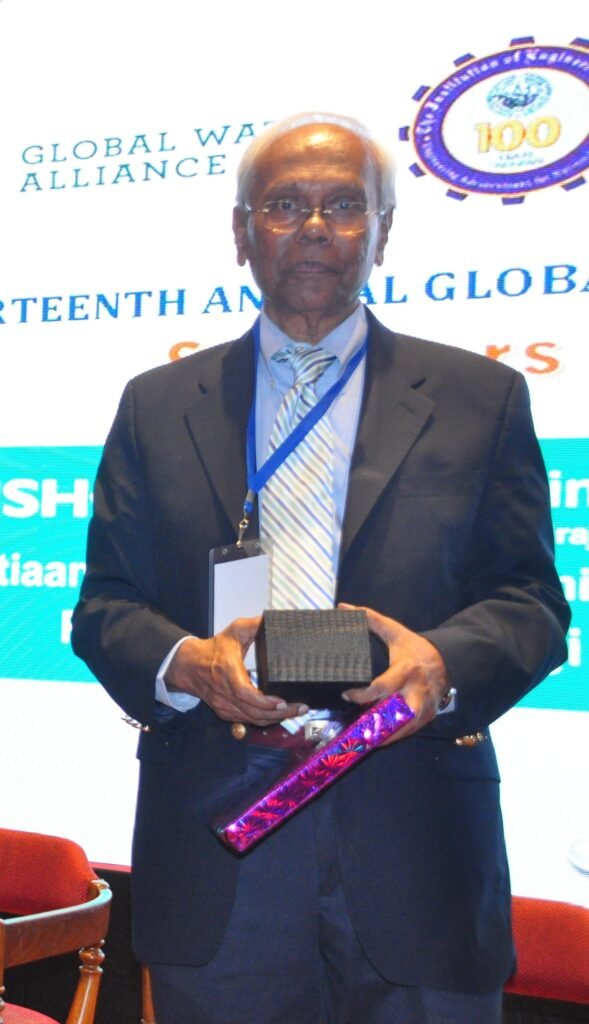
The organization has been trying to promote water and sanitation as a service through its impact model called ‘Everyone Forever’ since 2012. A key initiative to make this happen is their partnership with local gram panchayats to establish ‘Jalabandhus’ or ‘Friends of Water.’ These hand pump mechanics, trained by WFP, ensure the proper maintenance and repair of community hand pumps, ensuring reliable access to safe water.

The success of this model led to its adoption and replication across the State by the West Bengal Government. “To fill the service gap, we identify and train local entrepreneurs who directly provide services through Points of Purchase to households needing water and sanitation services. This market-based approach helps promote micro-entrepreneurs’ livelihoods and provides lasting water and sanitation services. So far, we have impacted the lives of around 5 million across the various states we work in India,” adds Ghose.
Safe Water Network, Delhi
Safe Water Network (SWN) is a not-for-profit based in New York with offices in India and Ghana. It was started in India in 2009 to improve public health by providing safe drinking water access to the underserved.

They work on different aspects of water, such as water quality, adequate quantity, and water safety, by enabling local communities to own, operate, and manage their safe drinking water source and training communities in water budgeting and reasonable water use. Poonam Sewak, Trustee & V.P. – Programs and Partnerships, says, “We have installed more 340+ safe water stations which are providing safe water access to more than 1.4 million people in Telangana, Maharashtra, and Uttar Pradesh.

These stations provide safe and affordable water to underserved people with little or no access. These Small Water Enterprises (SWEs) are decentralized kiosks, locally owned and operated by women self-help groups and entrepreneurs. The program has generated 914 livelihoods, of which 29% are women.”
